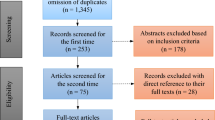Abstract
Following the 1990 World Conference on Education for All in Jomtien, Thailand, many developing countries are making efforts to achieve basic education for all by the year 2000. However, when it comes to measuring educational progress, there are few methodologies that can overcome the many problems and controversies in this area. This paper describes a serviceable methodology for measuring basic education (competencies in reading, writing and arithmetic, as well as selected life skills), which has proven to be simple, inexpensive and rapid. This approach, termed the Assessment of Basic Competencies (ABC), has been tested in Bangladesh on 2,100 children between the ages of 11 and 12. The results are discussed here. This methodology may be of use to education programme managers in other developing countries.
Zusammenfassung
Nach der Weltkonferenz über Bildung für Alle 1990 in Jomtien, Thailand, bemühen sich viele Entwicklungsländer um eine Grundbildung für alle bis zum Jahr 2000. Wenn man jedoch die Methoden zur Bemessung der Leistungen der Schüler betrachtet, gibt es nur wenige Methodologien, die die zahlreichen Probleme und Kontroversen auf diesem Gebiet bewältigen können. Dieser Artikel beschreibt eine praktische Methodologie zur Bewertung der Grundbildung (Lese- und Schreibfähigkeiten, arithmetische Fähigkeiten sowie ausgewählte zum Leben notwendige Fahigkeiten), die sich als einfach, preiswert und schnell erwiesen hat. Dieser Ansatz wurde in Bangladesh an 2.100 Kindern zwischen 11 und 12 Jahren getestet. Das Ergebnis wird in diesem Artikel erortert. Diese Methodologie könnte Bildungsprogrammleitern in anderen Entwicklungsländern von Nutzen sein.
Résumé
En réponse au Congrès Mondial sur l'Education pour Tous qui a eu lieu en 1990 à Jomtien, Thaïlande, de nombreux pays en voie de développement multiplient leurs efforts pour réaliser l'éducation de base de tous d'ici l'an 2000. Quand il s'agit pourtant d'évaluer le progrès pédagogique, rares sont les méthodologies pouvant faire face aux nombreux problèmes et controverses existant dans ce domaine. Cet article décrit une méthode efficace pour évaluer l'éducation de base (compétences en écriture, lecture et arithmétique de même que certaines aptitudes à la vie pratique), qui s'est révélée simple, économique et rapide. Ce procédé, appelé Evaluation des Compétences de Base (ABC — Assessment of Basic Competencies), a fait l'objet d'un essai au Bangladesh auprès de 2100 enfants entre 11 et 12 ans, dont les résultats sont discutés ici. Cette méthode pourrait être intéressante aux organisateurs de programmes d'éducation dans d'autres pays en développement.
Similar content being viewed by others
References
Anonymous. 1982. Literacy in Rural Kenya, 1980/81.Social Perspectives 7(1). Nairobi: Central Bureau of Statistics.
Bhola, H.S. 1984.Campaigning for Literacy: eight national experiences of the twentieth century, with a memorandum to decision makers. Paris: UNESCO.
Bhola, H.S. 1990.Evaluating “Literacy for Development” Projects, Programs and Campaigns. Hamburg: UNESCO Institute for Education.
Borg, W.R. and Gall, M.D. 1983.Educational Research, an Introduction. New York and London: Longman.
BRAC 1992a.Assessment of Basic Knowledge of Children in Bangladesh: Proposal for a Benchmark Study. Dhaka.
BRAC 1992b.Assessment of Basic Education of Children. Dhaka: NFPE and PEOC.
BRAC 1992c.Assessment of Basic Knowledge of Children Study, interviewers' manual. Dhaka.
BRAC 1992d.Assessment of Basic Education of Children in Bangladesh (final report). Dhaka.
Carr-Hill, R.A. et al. 1992.The Functioning and Effects of the Tanzanian Literacy Programme. Paris: International Institute for Educational Planning, Research Report No. 93.
Cochran, W.C. 1963.Sampling Techniques. New York: John Wiley.
Easton, P. 1983. Functional Literacy in the West African Sahel: The Operation Arachide project in Mali. In: J. Book and G. Papgiannis, eds.,Non-formal Education and National Development: A Critical Assessment of Policy, Research and Practice. New York: Praeger.
Gupta, S.C. and Kapoor, V.K. 1984.Fundamentals of Applied Statistics. New Delhi: Sultan Chand & Son.
Henderson, R.H. and Sundaresan, T. 1982. Cluster Sampling to Assess Immunization Coverage: A Preview of Experience with a Simplified Sampling Method.WHO Bulletin 60(2).
Kirsch, I. and Guthrie, J. 1977. The Concept and Measurement of Functional Literacy.Reading Research Quarterly 13(4): 486–507.
Kirsch, I. and Jungeblut, A. 1986.Literacy: Profiles of America's Young Adults. Princeton: Educational Testing Service.
Levine, K. 1982. Functional literacy: Fond Illusions and False Economics.Harvard Educational Review 52(3): 249–266.
Lovell, C. and Fatema, K. 1989.The BRAC Non-Formal Primary Education Programme in Bangladesh. New York: Assignment Children, UNICEF.
Messick, S. 1988. Validity. In: R.L. Linn, ed.,Educational Measurement. New York: Macmillan Publishing Company.
Richmond, E. 1986.Comparative Survey of Seven Adult Functional Literacy Programs in Sub-Saharan Africa. Lanham: University Press of America.
Ullah, M. 1991.Our School (in Bangla). Dhaka: Directorate of Primary Education.
United Nations 1989.National Household Survey Capability Programme: Measuring Literacy Through Household Surveys. New York.
UNESCO 1976.The Experimental World Literacy Program: A Critical Assessment. Paris.
UNESCO 1983.Statistics of Education and Attainment of Illiteracy. Paris.
UNESCO 1989.Statistical Yearbook 1989. Paris.
UNESCO 1990.Compendium of Statistics on Illiteracy. Paris.
UNESCO 1992. Aftermath of the World Conference.In Bulletin of the UNESCO Regional Office for Asia and the Pacific. Bangkok: 1992.
UNICEF 1989.State of the World's Children 1990. Oxford University Press.
UNICEF 1992.Assessment of Basic Competencies of Children. Status report. Dhaka.
Valentine, T. 1986. Adult Functional Literacy as a Goal of Instruction.Adult Education Quarterly 36: 108–113.
Wagner, D.A. 1990. Literacy Assessment in the Third World: An Overview and Proposed Schema for Survey Use.Comparative Education Review 34(1): 112–138.
Walker, P. 1990. Coping with Famine in Southern Ethiopia.International Journal of Mass Emergencies and Disasters 8(2): 103–116.
WCEFA 1990.Meeting Basic Learning Needs: a Vision for the 1990s. New York: UNICEF.
WHO 1983.Evaluate Vaccination Coverage. New Delhi.
Ziegahn, L. 1992. National Literacy Assessments: Present Practice and Alternatives.International Journal of Educational Development 12(3): 223–232.
Ziegahn, L. and Sakoane, E. 1985.Adult Literacy in Lesotho. Lesotho Distance Teaching Centre.
Rights and permissions
About this article
Cite this article
Chowdhury, A.M.R., Ziegahn, L., Haque, N. et al. Assessing basic competencies: A practical methodology. Int Rev Educ 40, 437–454 (1994). https://doi.org/10.1007/BF01102822
Issue Date:
DOI: https://doi.org/10.1007/BF01102822




